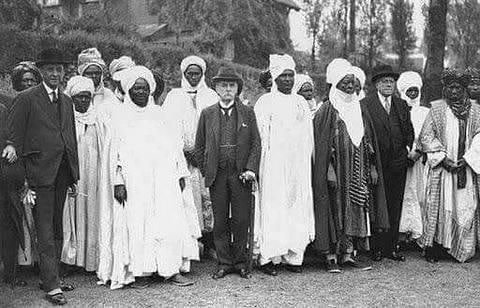Back to: History Primary 5
Hello there, my amazing Afrilearn champion! I hope you’re having a great day. Today, we’re going to talk about something that changed the way Nigeria was ruled—how Lord Frederick Lugard, the governor of Northern Nigeria in 1912, introduced a system called indirect rule. This system allowed the British to control Nigeria without being directly involved in everyday governance. Let’s find out how this happened!
1912 – Lord Lugard, Governor of Northern Nigeria, Established a System of Indirect Rule
Have you ever seen a school prefect given the power to enforce school rules? The principal may be in charge, but the prefects help maintain order. This is similar to what happened when the British introduced indirect rule in Nigeria. Instead of ruling the people directly, they allowed local traditional rulers, like Emirs, Obas, and Chiefs, to govern on their behalf.

Lord Frederick Lugard, who became governor of Northern Nigeria in 1912, believed this system would help the British rule Nigeria easily and cheaply. He used this system successfully in the north and later introduced it to other parts of Nigeria. But did it work everywhere? Let’s find out!
Before the British came, Nigerian communities had their own rulers and systems of government. In Northern Nigeria, the Fulani Emirs ruled over the people using an organised system that had been in place for years. When the British took over, Lord Lugard realised that instead of removing the Emirs, he could use them to govern the people under British control.
The system of indirect rule allowed traditional rulers to stay in power, but they had to follow British policies. The Emirs collected taxes, maintained law and order, and carried out British instructions. This made ruling the north easy for the British because the people were already used to obeying their traditional rulers.

However, when Lord Lugard tried to introduce indirect rule in Southern Nigeria, it didn’t work well. The Igbo people, for example, did not have a central king like the north. They ruled themselves through elders and village councils. When the British tried to impose warrant chiefs (local leaders chosen by the British), the people resisted, leading to conflicts like the famous Aba Women’s Riot of 1929.
By 1914, Lord Lugard had joined Northern and Southern Nigeria together as one country under British rule. Although indirect rule helped the British govern easily, it was mostly designed to benefit them, not the Nigerian people.
Think of a school where the principal decides to rule through the class captains instead of directly giving instructions to students. The class captains act as leaders, but they must obey the principal. If they refuse, they are removed. This is how indirect rule worked—the British controlled Nigeria but used traditional rulers to enforce their policies.
Now, imagine if a school without class captains was suddenly forced to accept them. The students might resist because they were used to making decisions together. This was the case in Southern Nigeria, where indirect rule caused problems.
In 1912, Lord Lugard introduced indirect rule in Northern Nigeria, allowing traditional rulers to govern under British supervision. The system worked well in the north because the people were already used to central leadership under the Emirs. However, it failed in the south, especially among the Igbo, who had no kings. This system made ruling Nigeria easier for the British, but it also created problems that lasted for many years.
Evaluation:
- Who introduced the system of indirect rule in Nigeria?
- Why did indirect rule work well in Northern Nigeria?
- What was the major problem with indirect rule in Southern Nigeria?
- Name one event that showed people in Southern Nigeria resisted indirect rule.
- In what year did Lord Lugard merge Northern and Southern Nigeria?
Wow! You are truly a history superstar! Learning about Nigeria’s past helps you understand how things work today. Keep asking questions, keep learning, and keep making us proud. See you in the next lesson, Afrilearn champion! Keep shining!
